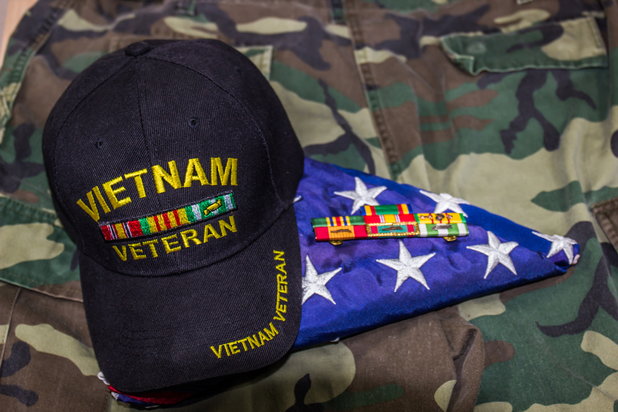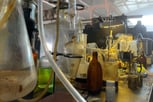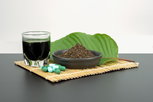Compared to any preceding war, substance use among troops in Vietnam saw the highest psychoactive drug use in the military. Black market access to LSD, mescaline, psylocibin, heroin and cocaine was so widespread that Egil Krogh of the Bureau of Narcotics and Dangerous Drugs was quoted telling President Richard Nixon, “You don’t have a drug problem in Vietnam; you have a condition. Problems are things we can get right on and solve.”
Aside from the vast availability of illicit substances in Vietnam at the time, the U.S. military also proffered soldiers with drugs that helped them sleep, stay alert, or attempt to push their endurance pass the limits. In the past, U.S. government also aimed to help World War II soldiers through extended combat by distributing amphetamine, a highly addictive stimulant that can make one feel more energetic and powerful.
However, despite little post WWII research on amphetamine and its benefits to soldiers at war, the military still readily distributed speed to G.I.’s in Vietnam. “Pep pills,” as they called it, were prescribed left and right with no regard to monitoring dosage or frequency of refills. From 1966 and 1969, the most widely distributed stimulant was Dexedrine, an amphetamine derivation almost twice the strength of the Benzedrine that was distributed in WWII.
Drug Use Among Soldiers in Vietnam
According to a report on the National Academies Press, 20 percent of those who enlisted in the U.S. troops in Vietnam were addicted to heroin after 1970. Here are three factors that likely contributed to this phenomenon:
-
The troops needed it in combat situations for escape, relief of stress and pleasure.
-
The stigma against drug use in the United States was waning.
-
The drugs were readily available at low cost due to profiteering by some South Vietnamese officials.
Also relevant was the growing disenchantment with the war among the troops and at home and the deterioration of the soldiers’ morale.
A Sobering Return
Suprisingly, a strong 95 percent of addicts during the Vietnam War did not become re-addicted at war’s end. Some may say that this is an indication that the tenacity and stubbornness of physiological narcotic addiction is a myth, but all other research point the other direction. How, then, was it possible to find such a high rate of recovery among this group?
Here's a well-accepted theory.
War is a distressing place for soldiers. It’s rife with chaos and violence in between long periods of boredom. It is time spent far away from loved ones and coming to terms with the death of comrades. Soldiers succumb to diversions to help them cope, out of which include mind-altering substances that were particularly easy to obtain in their host country. This group of soldiers, upon their return home—once treated for the physical dependence they developed in Vietnam—found themselves in a place so fundamentally different from their wartime environment that there was no longer a psychological need/desire for the experience the drugs bring.
This supports the contention of most rehabilitation treatment centers that it is of utmost importance that addicts uproot themselves from their current circle of friends and avoid previous meeting places and activities that they've once associated with drinking or drugging. This is typically a very difficult and lonely phase for the recovering addict, but fortunately for 95 percent of the Vietnam vets, the separation from their previous environment was a welcome event.
|
If you or someone you know is seeking help from addiction, please visit our directory of treatment centers or call 800-891-8171 to speak to a treatment specialist. |








